Ten Faculty Members Celebrate Tenure and Full Professorships
Ten members of the Vassar faculty with a combined 141 years of service to the College have attained major milestones in their academic careers. The Board of Trustees promoted four of them to full professorships and granted tenure to six others. The new full professors are Nikolai Firtich, Russian Studies; Christine Howlett, Music; Jeffrey Schneider, German Studies; and Marc Smith, Computer Science. Those granted tenure and elevated to Associate Professorships are: Charles Arndt, Russian Studies; Leah Bendavid, Chemistry; Kimberly Williams Brown, Education; Taneisha Means, Political Science; Tahirih Motazedian, Music; and Kirsten Wesselhoeft, Religion.
“It is my great honor to announce these promotions,” said Dean of Faculty and Professor of Physics Brian Daly. “These 10 faculty members have distinguished themselves as scholars, teachers, and leaders both on our campus and in the wider community. Vassar is fortunate to have these brilliant and dedicated people as part of our community, and I look forward to working alongside them in the years to come.”
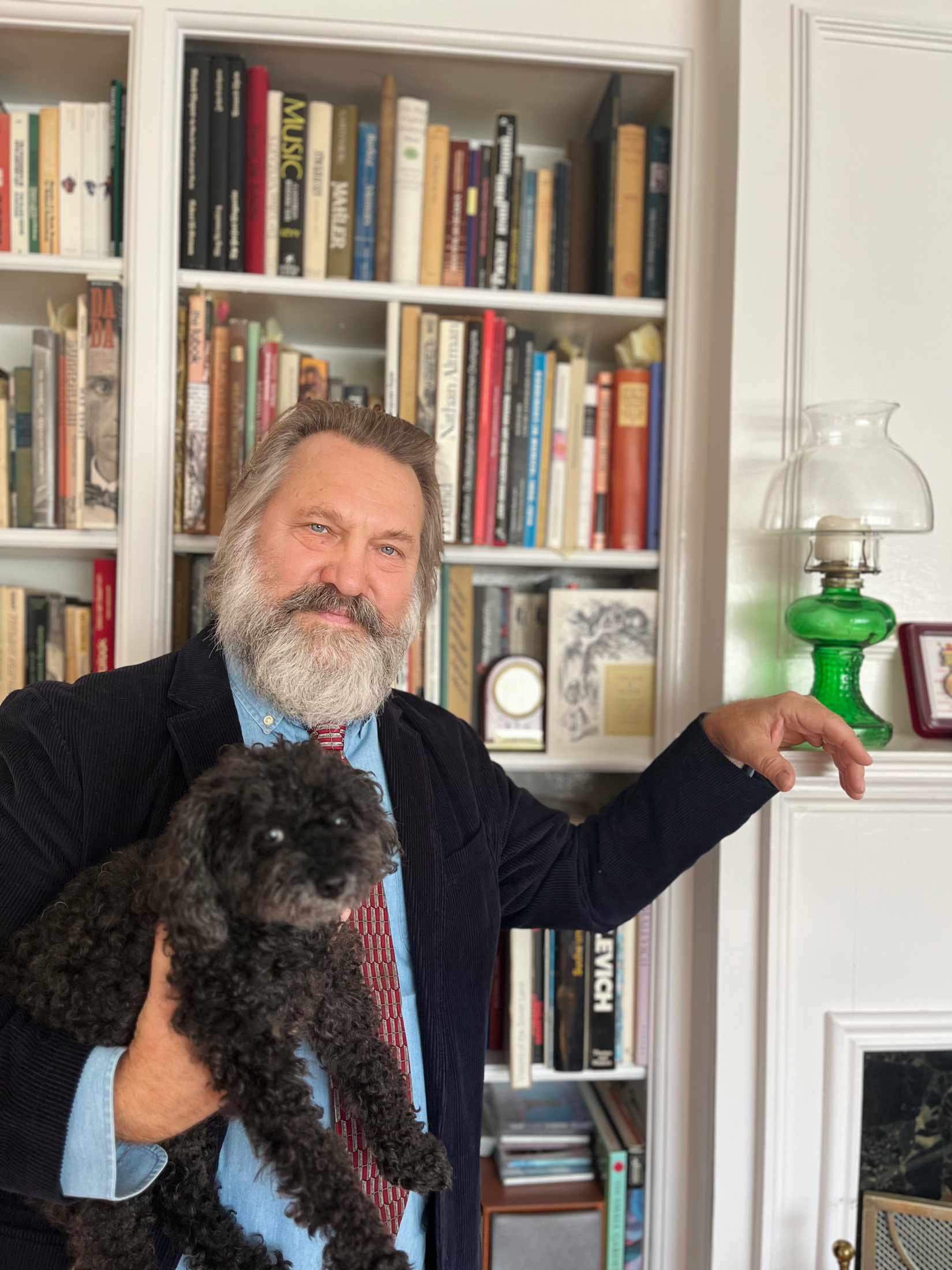
Professor Firtich earned his PhD in Slavic Languages and Literatures at Yale University after studying art in his native St. Petersburg, and began his Vassar career in 2000. He teaches Russian literature of the 19th and 20th centuries and several interdisciplinary courses, which include Russian, English, and East and West European literatures as well as visual arts and film. He formerly directed Vassar’s Study Abroad program in St. Petersburg and is currently working on establishing a new program in the Republic of Georgia, where he teaches courses for Yale University Summer Session every year.
Firtich said his love for Vassar came early in his career. “I came to Vassar straight out of graduate school and soon realized that this was the right place for me,” he said. “Teaching at Vassar has been consistently rewarding in every respect, as the intellectual diversity of the College supports and stimulates scholarly pursuits of the faculty, and the College’s encouragement of service work within and beyond Vassar has allowed us to create exciting international study programs that benefit the College and engage our motivated and intrepid students. The collegial atmosphere of our department has been ideal for the development of courses aligned with our academic interests. Overall, I think that the supportive, welcoming, and intellectually stimulating culture and spirit that was fostered in Vassar’s Department of Russian Studies over the past two and a half decades has been truly unique, and in this environment it’s been a pleasure and an honor getting to know our students as bright, distinctive individuals and emerging scholars.”
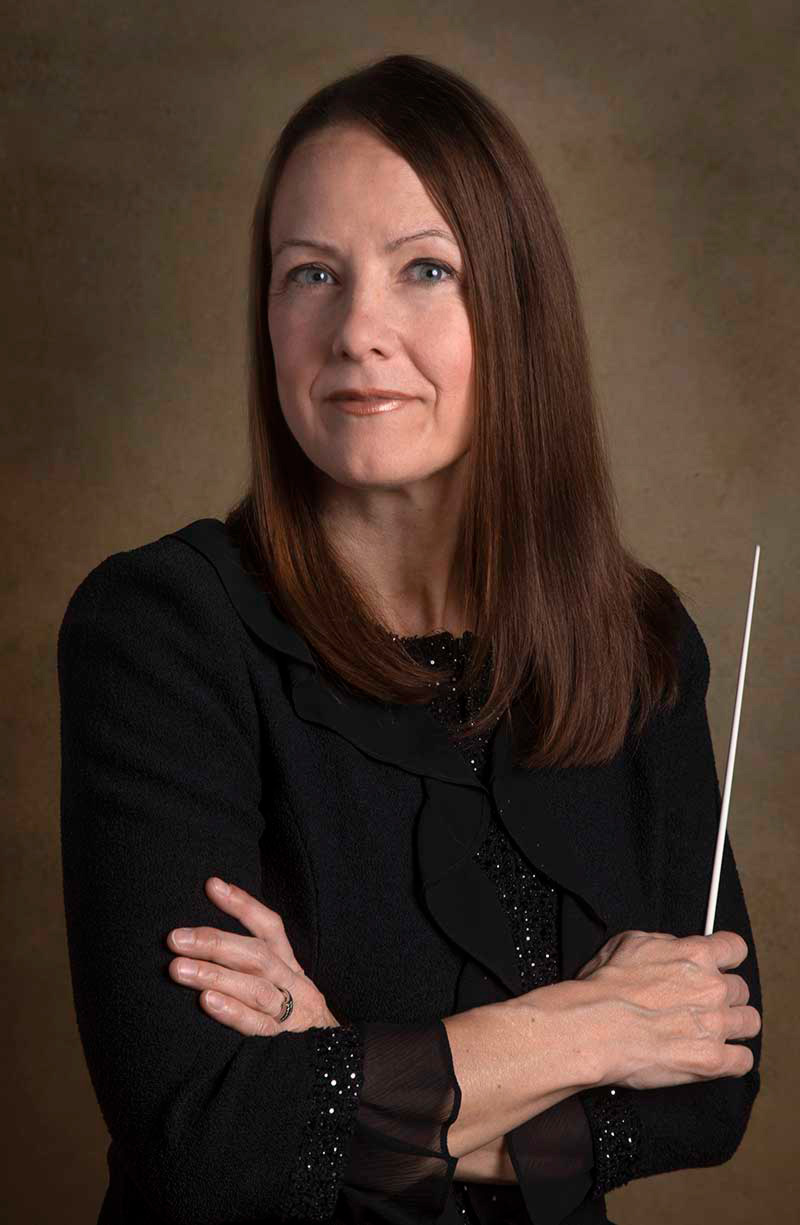
Professor Howlett earned her BA degree from the University of Toronto and her MA and DMA degrees from Indiana University Bloomington, and joined the Vassar faculty in 2003. She conducts the Vassar College Treble Chorus and the Vassar College Choir and teaches music theory and voice. Her choruses have sung at Lincoln Center and Carnegie Hall and have toured overseas, most recently in Austria and the Czech Republic, as well as Cuba, England, France, Germany, Italy, Japan, Spain, Turkey, and Uganda. Howlett served as Chair of the Music Department from 2016–2020 and returned as Chair in the fall of 2021. Under the Dean of Studies office, she has served multiple terms on the Committee on Leaves and Privileges and the Fellowships Committee since 2009.
Howlett said she decided to accept a one-year visiting position at Vassar after turning down a tenure-track position at a much larger institution. “What was I thinking?” she recalled. “But it was clear to me that Vassar was a special place, with exceptional faculty and incredibly intelligent and passionate students. I felt at home instantly. I remember thinking, ‘Maybe they'll keep me a little longer after this first year.’
“Over 20 years later, my experience at Vassar has been nothing short of extraordinary. I am surrounded by deeply supportive colleagues, inspiring and passionate students, and an administration that consistently demonstrates thoughtfulness and care for both our department and me personally. What is amazing about being at Vassar? We have the freedom and support to teach and perform with students in our unique ways. This trust from the College and my department has fostered my creativity and encouraged me to engage in life-changing work, such as the At Home in the World project in Japan and Uganda. I have formed some of my closest friendships here and maintain connections with many [alums]. I truly cannot imagine being anywhere else.”
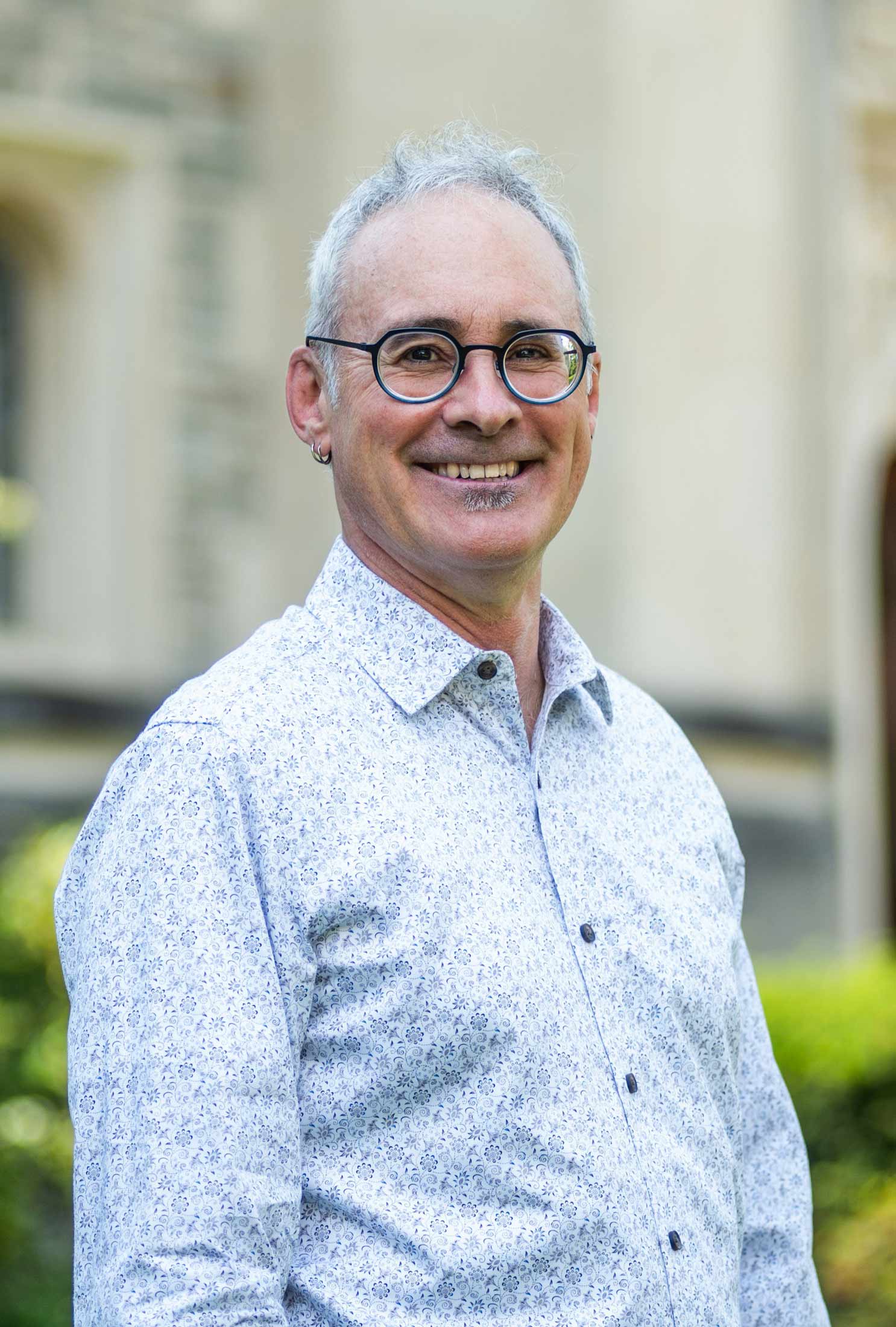
Professor Schneider earned his BA degree from Bates College and his MA and PhD from Cornell University. He joined the Vassar faculty in 1997 and has taught courses with a wide variety of subject matter. Last year, he published Uniform Fantasies: Soldiers, Sex, and Queer Emancipation in Imperial Germany (University of Toronto Press, 2023), which explores the period before the First World War. Now he has begun a book-length study of the global popularity of Asian Boys’ Love (BL) television and web series and is currently teaching a seminar on the topic in Women, Feminist, and Queer Studies. Previously, Schneider collaborated on several articles on foreign language pedagogy with Vassar Associate Professor and Chair of German Studies Silke von der Emde.
Schneider said he chose to teach at Vassar because he had completed his undergraduate degree at a small liberal arts college and loved the atmosphere there, but he said Vassar has surpassed all of his expectations. “I certainly value the small class sizes and the opportunity to work closely with tremendously bright and talented students, but Vassar’s curriculum and system of shared governance has also fostered my own intellectual growth,” he said. “Right from the start of my career, I have collaborated with my colleagues in German Studies to develop new and innovative approaches to teaching language and culture. Over the years I have also been active in several of Vassar’s multidisciplinary programs, including Women, Feminist, and Queer Studies; International Studies; Global Nineteenth-Century Studies; and Media Studies, all of which have allowed me to expand my knowledge and research profile beyond my original training in German literature, history, and philosophy.
“Finally,” he concluded, “Vassar’s system of shared governance has helped me gain new skills and knowledge through committee work (I’m currently chairing the Committee on Inclusion and Equity) and by serving as the Faculty Director of Affirmative Action, where I help to oversee faculty recruitment and uphold Vassar’s policies against discrimination, harassment, and sexual misconduct. Every day is thus new and exciting, and I haven’t stopped learning yet.”
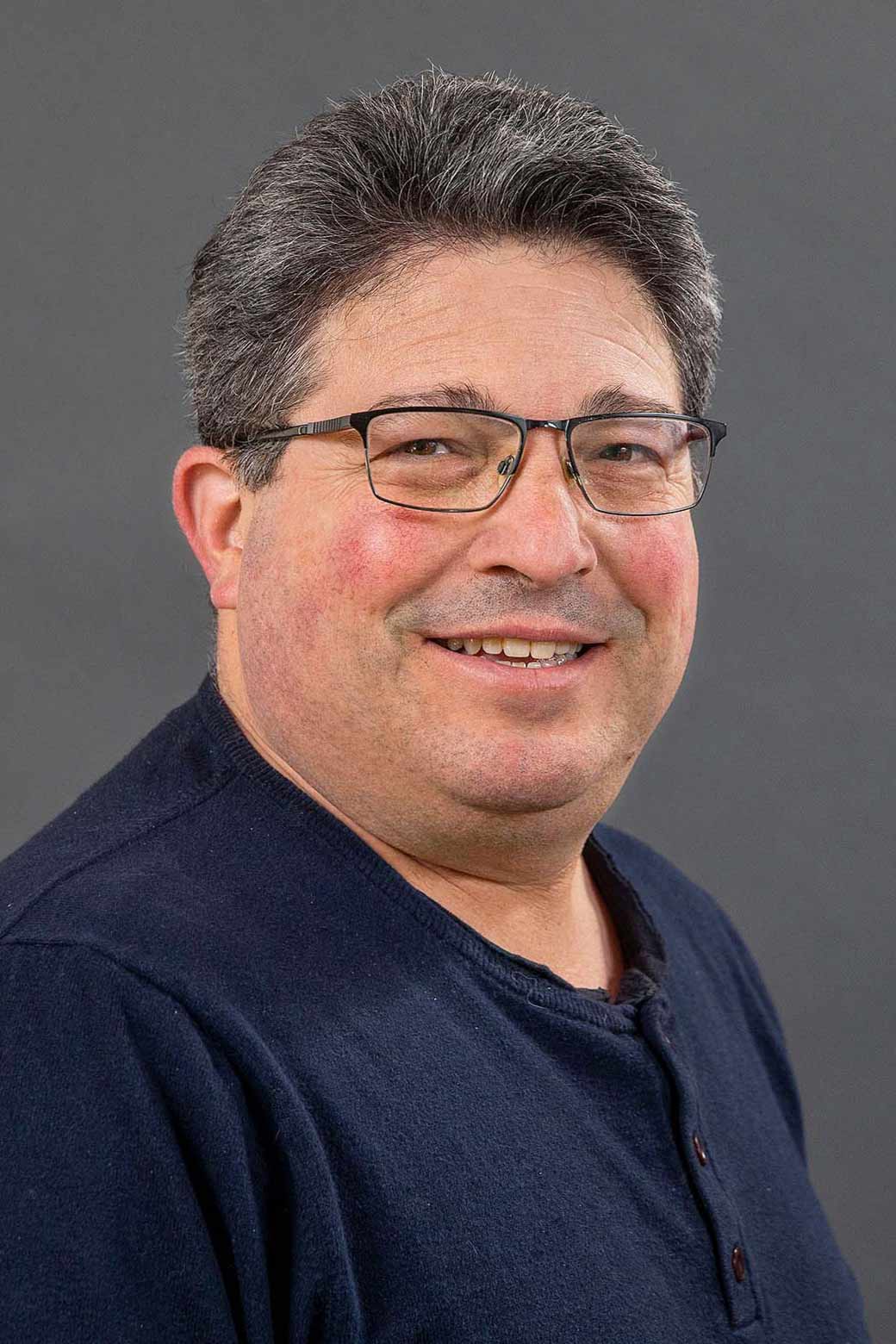
Professor Smith earned his BS, MS, and PhD degrees in Computer Science from the University of Central Florida in Orlando, and joined the Vassar faculty in 2006. Prior to his transition to academia, he worked in the IT industry for AT&T for 15 years in several different capacities, including applications and systems programming, and systems engineering. His primary areas of research are in models of parallel and distributed computing (and the programming languages that support them) and bioinformatics, with an emphasis on phylogenetic inference and evolutionary robotics. His teaching interests mirror his research interests, in addition to teaching introductory courses in the major.
“While I was in graduate school,” Smith said, “I realized that while I love the field of computer science, what I really wanted to do was teach it at the college level, at an institution that valued teaching equally with scholarship and service. When I interviewed at Vassar, I also discovered its rich history of computing and women in computing (Grace Hopper, Winifred Asprey, Nancy Ide), and that was inspiring and filled me with a great sense of awe. Once I met the students and the faculty, both in the Computer Science Department and across the College, that sealed the deal. This was where I felt welcomed, and where I wanted to be.
“While my most rewarding moments are in the classroom and during office hours with students, I’ve also found reward in serving the College as URSI Director, Computer Science Department Chair, a member of FASC, and most recently as a member of the Data Science and Society Steering Committee, and the Dean of Faculty Search Committee. Every day I come to work I make a difference in the lives of my students, which was not a feeling I had when I worked in industry. Through my service, I’ve come to appreciate a more subtle feeling of making a difference, that of helping to shape the future of the College. My time at Vassar has been truly rewarding.”
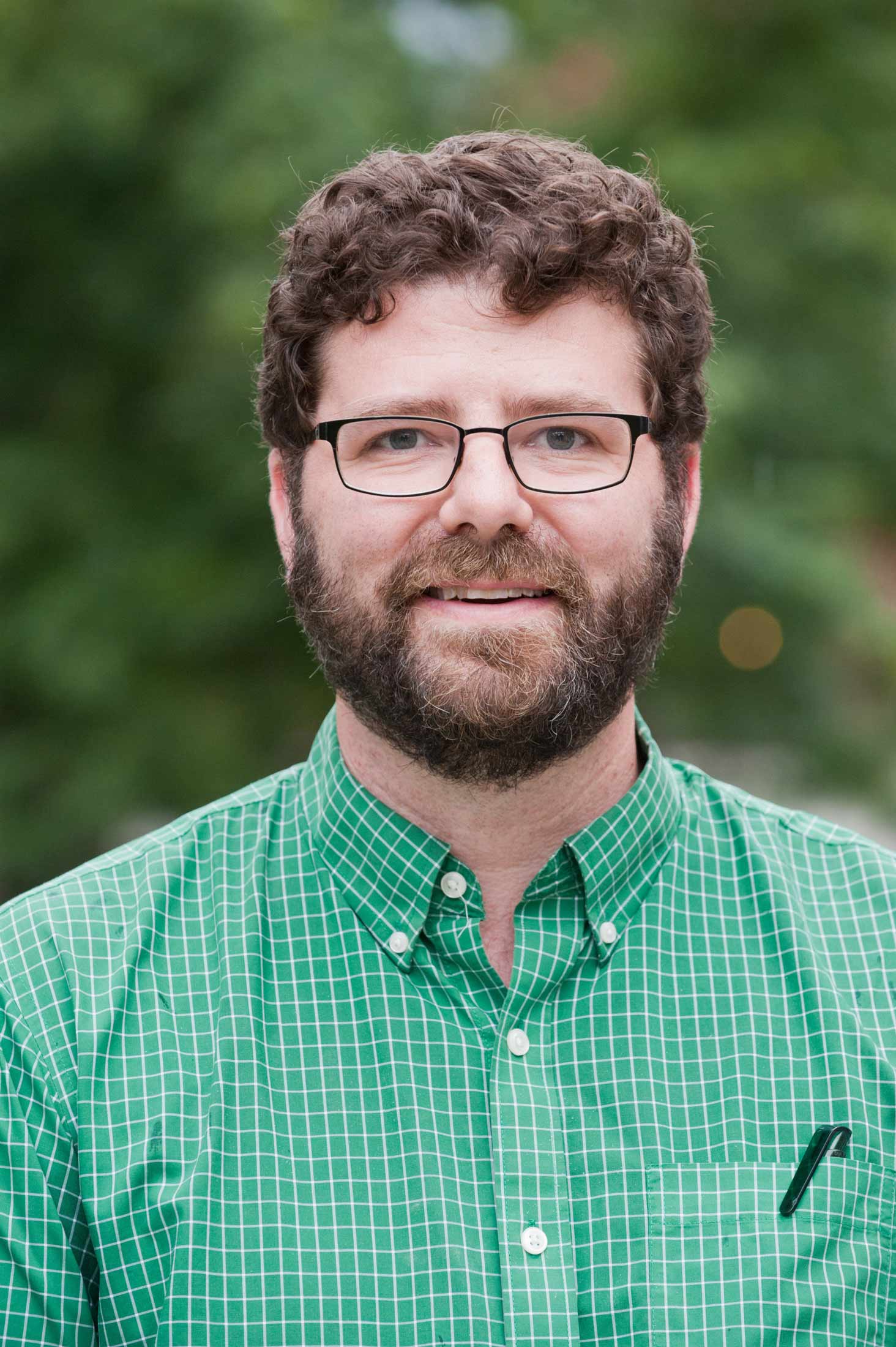
Associate Professor Arndt earned his BA degree at Dickinson College and his PhD at Brown University. He joined the Vassar faculty in 2012. His latest project is a full-length manuscript on wanderers in nineteenth-century Russian literature, titled “‘Our Common People Are a Vagrant Before Anything’: Wanderer-Pilgrims in the Nineteenth-Century Russian Literary Landscape,” which has been accepted by Slavica Publishers and is due to be published in November. He teaches Elementary Russian, Dostoevsky and Psychology, and Vampires, Monks, and Holy Fools: The Mystical in Russia and Eastern Europe. He has also taught The Russian Classics: The Great Realists of the Nineteenth Century, The Genius of Chekhov: Theatre and Tales, a Russian-language seminar on singer-songwriters, and has supervised student research projects. As part of his classes, Professor Arndt likes to play Russian and American songs on the guitar.
“What has made my experience at Vassar rewarding is that the students have such a broad range of interests and talents and are so invested in what they are doing here,” Arndt said. “Education at Vassar is not just the transferring of knowledge and information, it is a joint project where you are able to share your full enthusiasm both for your subject and for things beyond your subject, where you can explore new areas of personal growth and development."
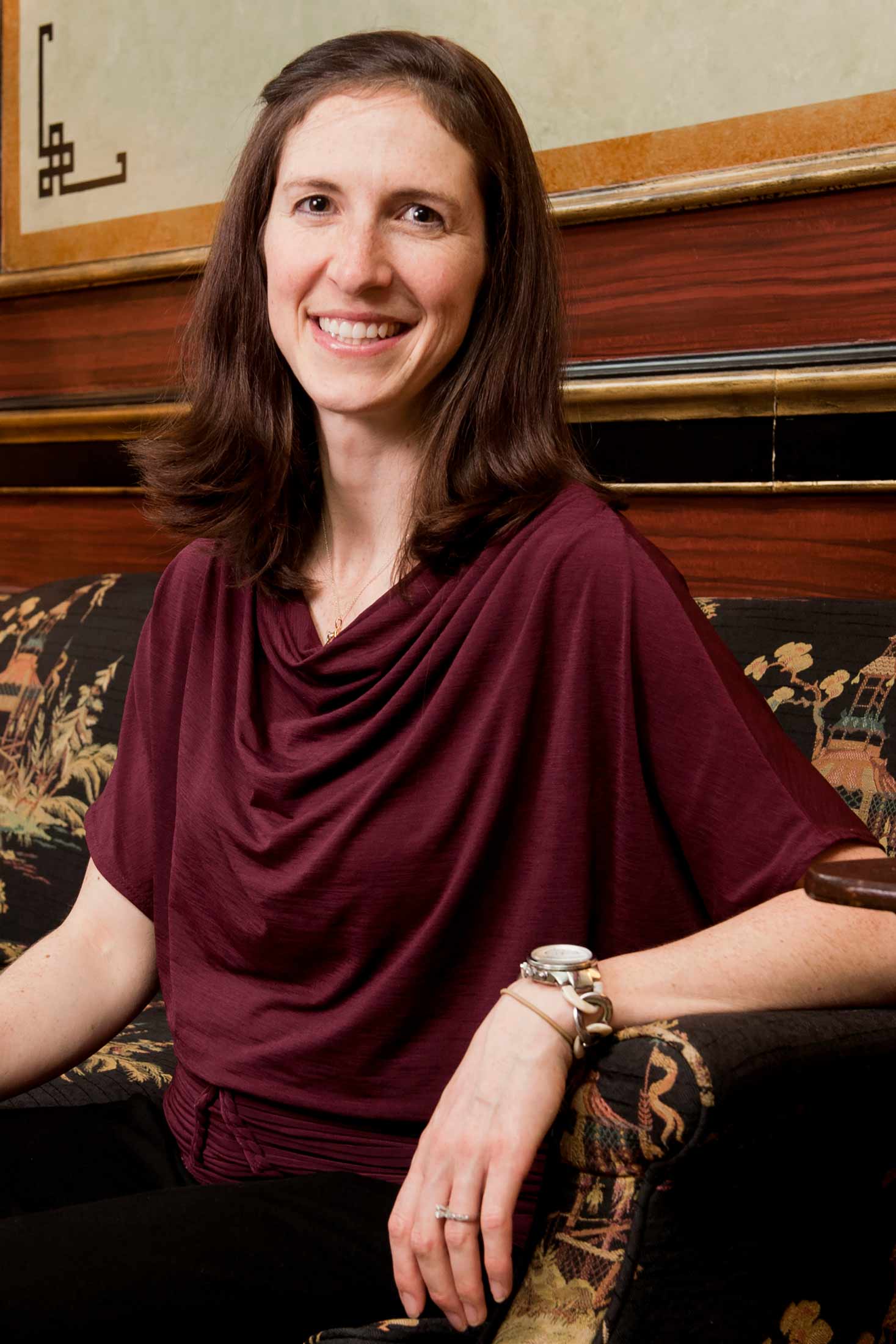
Associate Professor Bendavid earned her bachelor’s degree from Cooper Union and her MA and PhD from Princeton University. She joined the Vassar faculty in 2015. Her research and academic interests are physical chemistry, computational chemistry, materials chemistry, and solar energy conversion. In 2017 she was awarded a Visiting Faculty Program Fellowship in the Department of Materials and Interfaces at the Weizmann Institute of Science, one of the world’s leading basic research institutions.
Bendavid said she chose Vassar because of her passion for teaching. “Vassar appealed to me because it offers an ideal combination of a teaching-focused environment and strong support for high-quality research,” she said. “The most rewarding aspect of my experience here has been the connections I’ve made with students, both in the classroom and through research. I have grown as an educator and as a person through these interactions. It is also incredibly fulfilling to witness the impact of my teaching and mentorship on the academic, professional, and personal lives of my students. I love hearing from former students about all they have accomplished.”
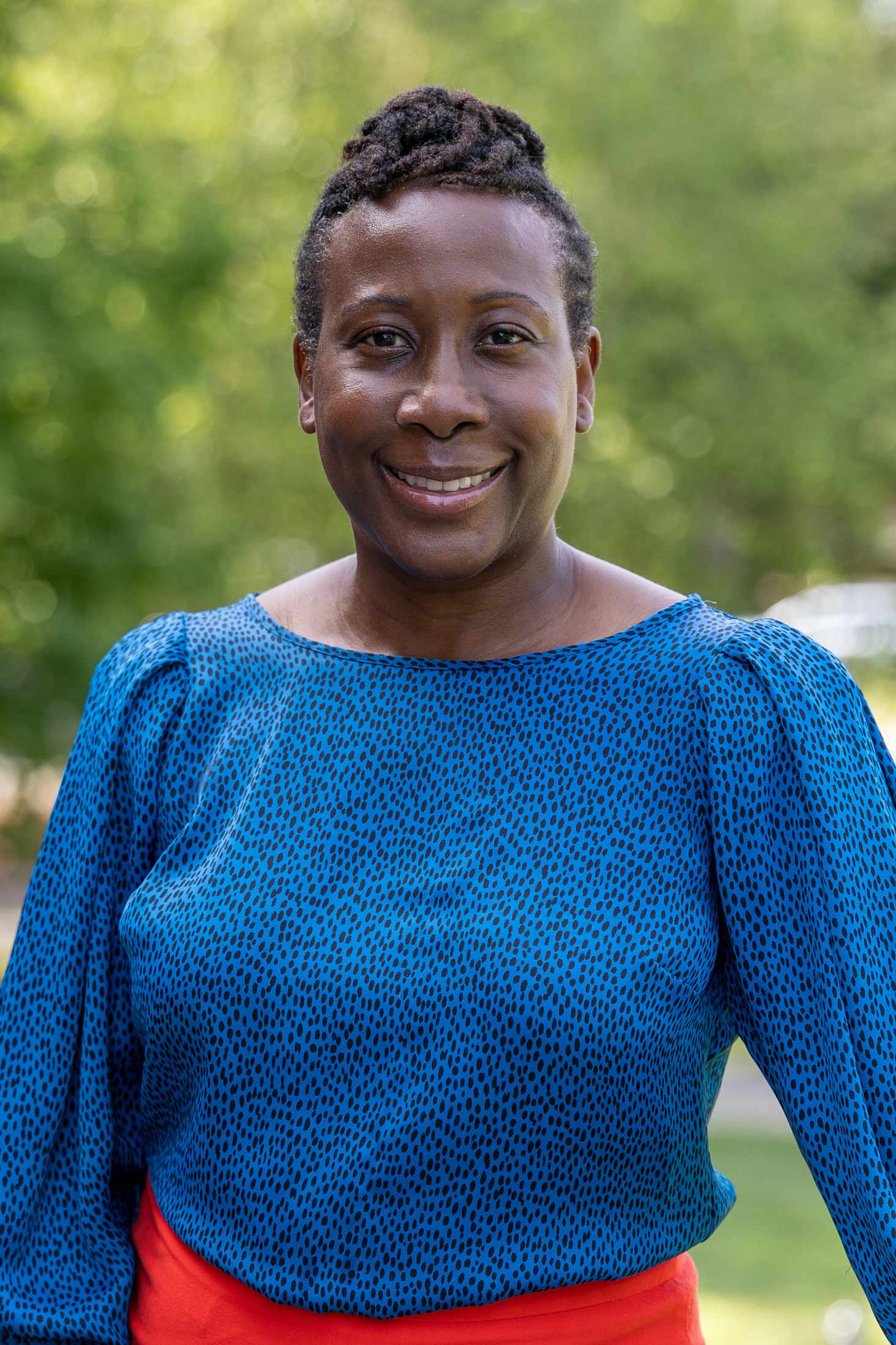
Associate Professor Williams Brown earned her PhD in Cultural Foundations of Education and Women and Gender Studies from Syracuse University. She joined the Vassar faculty in 2017 where, in addition to her teaching duties, she is Director of Engaged Pluralism. She has co-written two books, Rise for Racial Justice: How to Talk About Race with Schools and Communities with Colette Cann and Meredith Madden (Teachers College Press, 2022) and Say, Listen: Writing as Careby the Black/Indigenous 100s Collective (np: 2023). Her forthcoming solo manuscript Maroon Pedagogies: What Afro-Caribbean Women Teachers Tell Us About Race, Representation, and Resistance examines the work and life of Caribbean Black teachers in contemporary U.S. educational spaces.
Williams Brown said she is pursuing her career at Vassar because she believes in the value of a liberal arts education. “As a professor, it was my desire to provide that feeling to especially the students I teach who have significantly marginal identities,” she said. “In my experience, when students can feel connected to not just the content but also their peers and the professor, learning is optimized. I hope to have created these spaces in my classrooms, and Vassar has been a good space to cultivate this pedagogy because of the small class sizes and the emphasis on diverse communities and the ethic of engaged pluralism.”
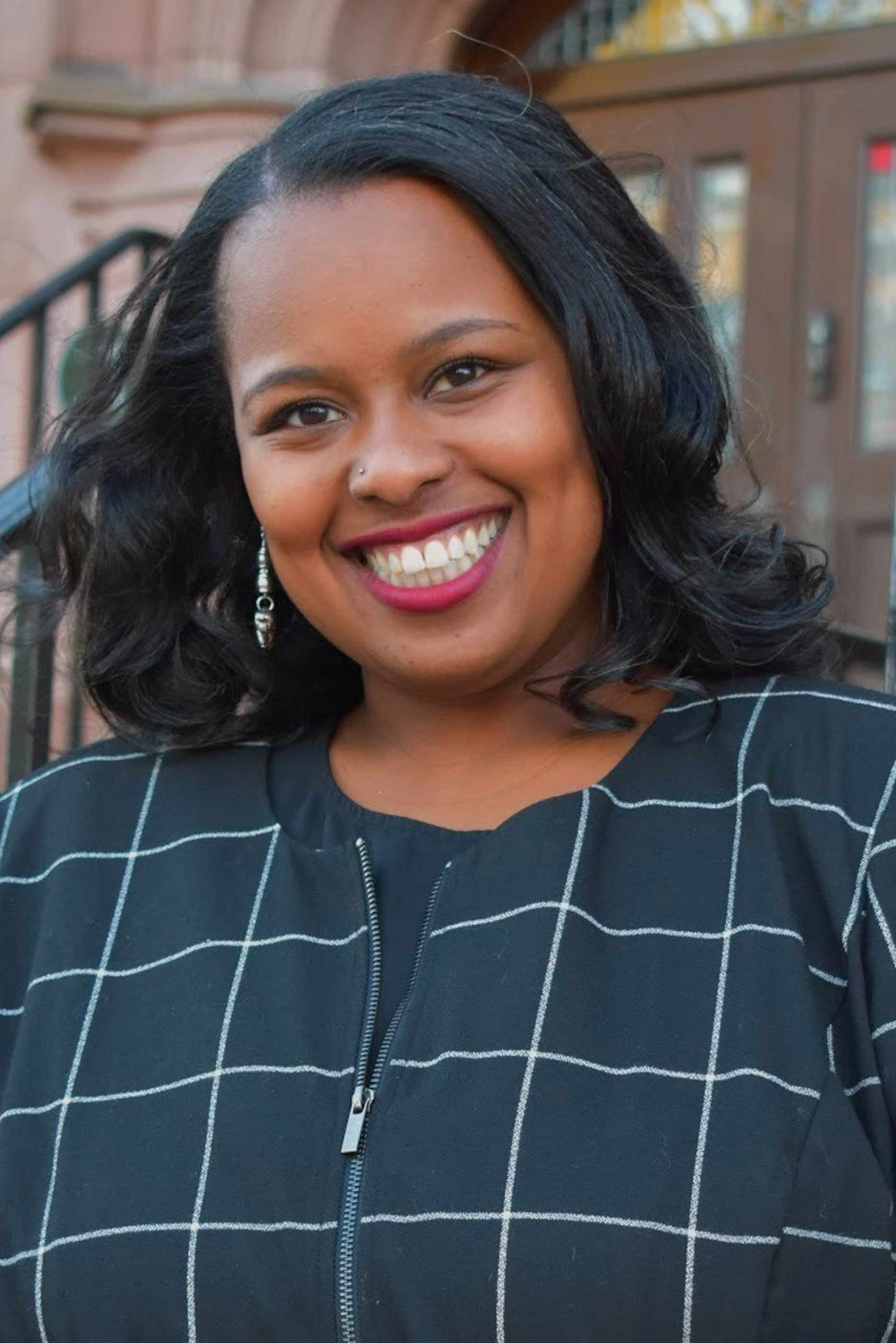
Associate Professor Means earned her BA degree from John Carroll University and her MA and PhD from Duke University, and joined the Vassar faculty in 2016. Her primary fields of research are political behavior and identities, and race and ethnic politics. She is a member of the Africana Studies Steering Committee and is a Faculty Affiliate for the Women, Feminist, and Queer Studies Program. In 2019 she was awarded a postdoctoral fellowship by the Ford Foundation. Her book Robed Representatives: How Black Judges Advocate in American Courts will be published in 2025 by Stanford University Press.
Means said her experience as a student at John Carroll University led her to pursue a career at a small liberal arts college. “I thrived in a small, intimate learning environment that emphasized reading, analytical, and writing skills. This setting allowed me to develop close, enduring relationships with my professors. My decision to pursue a career at Vassar was deeply influenced by its strong resemblance to my own undergraduate experience. Every day, I have the opportunity to connect and collaborate with students and colleagues who share a commitment to social justice, while curating educational experiences similar to those that shaped me as a Black first-generation college student.
“Working at Vassar has been rewarding,” Means continued. “The College and my colleagues have consistently encouraged and supported my work, providing me with the freedom to pursue my passions. As a professor here, I enjoy the autonomy to teach classes and topics aligned with my scholarly interests, explore research questions that captivate me, and engage in service work within and beyond Vassar that reflects my values.”
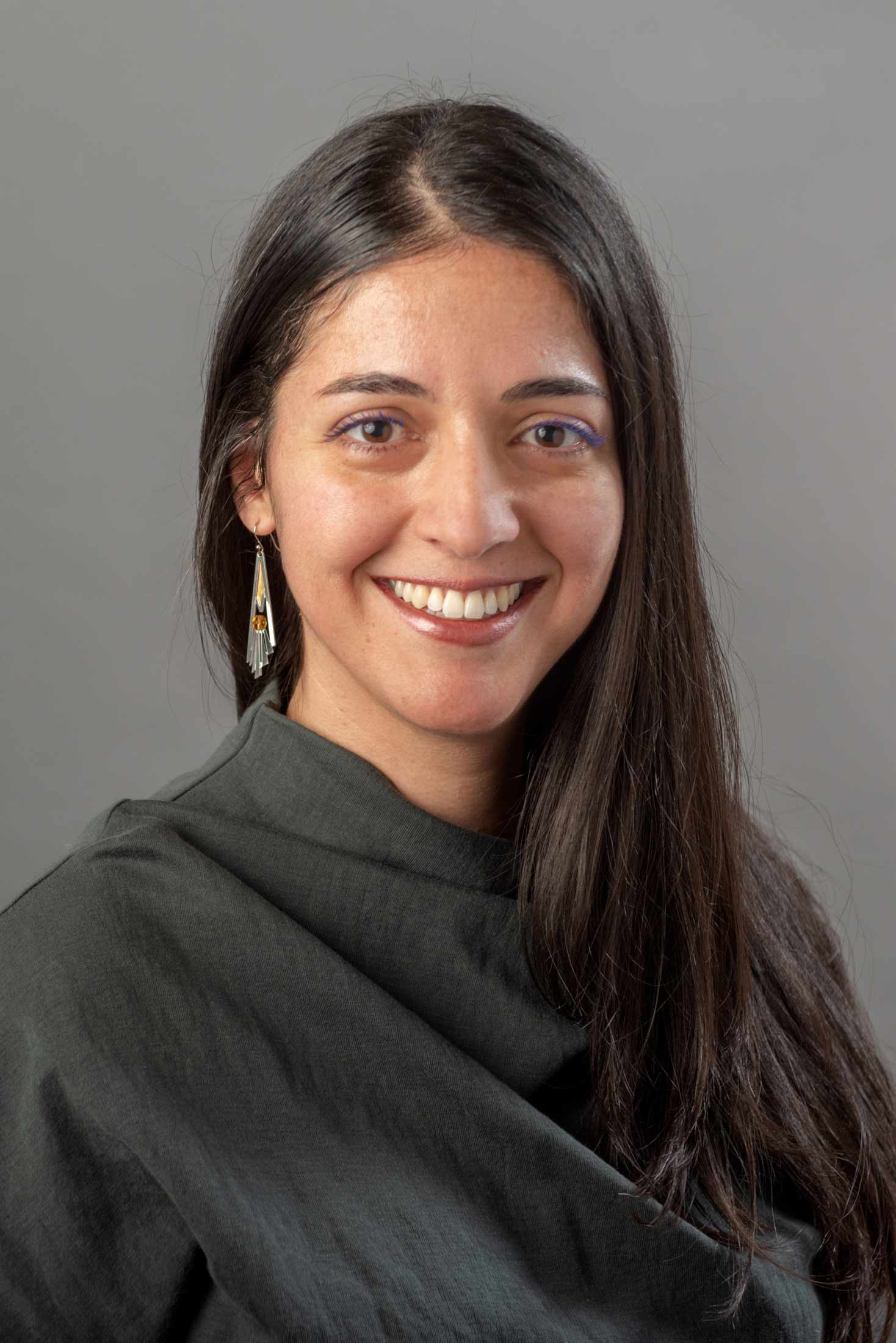
Associate Professor Motazedian’s academic journey contained several twists. Before deciding to pursue a career in music theory, she earned a degree in geophysics from the University of Oregon, where she made an important discovery about water on Mars. She went on to work as a planetary scientist for NASA, working with lunar samples, solar samples, and serving as a Downlink Operations Lead for the Mars Reconnaissance Orbiter. After returning from the cosmos, Táhirih completed a PhD in music theory at Yale University. Her main interests are film music, nineteenth-century music, and Russian music, and her book Key Constellations: Interpreting Tonality in Film was published by the University of California Press in 2023. She joined the Vassar faculty in 2017.
“The moment I arrived at Vassar for my job interview, I fell in love with the student culture here,” Motazedian said. “Vassar students are consistently the kindest, friendliest, most supportive, and least competitive students I’ve found anywhere, and they are so enthusiastic about learning. It’s an honor and a delight to help guide these lovely human beings along their college journeys.”
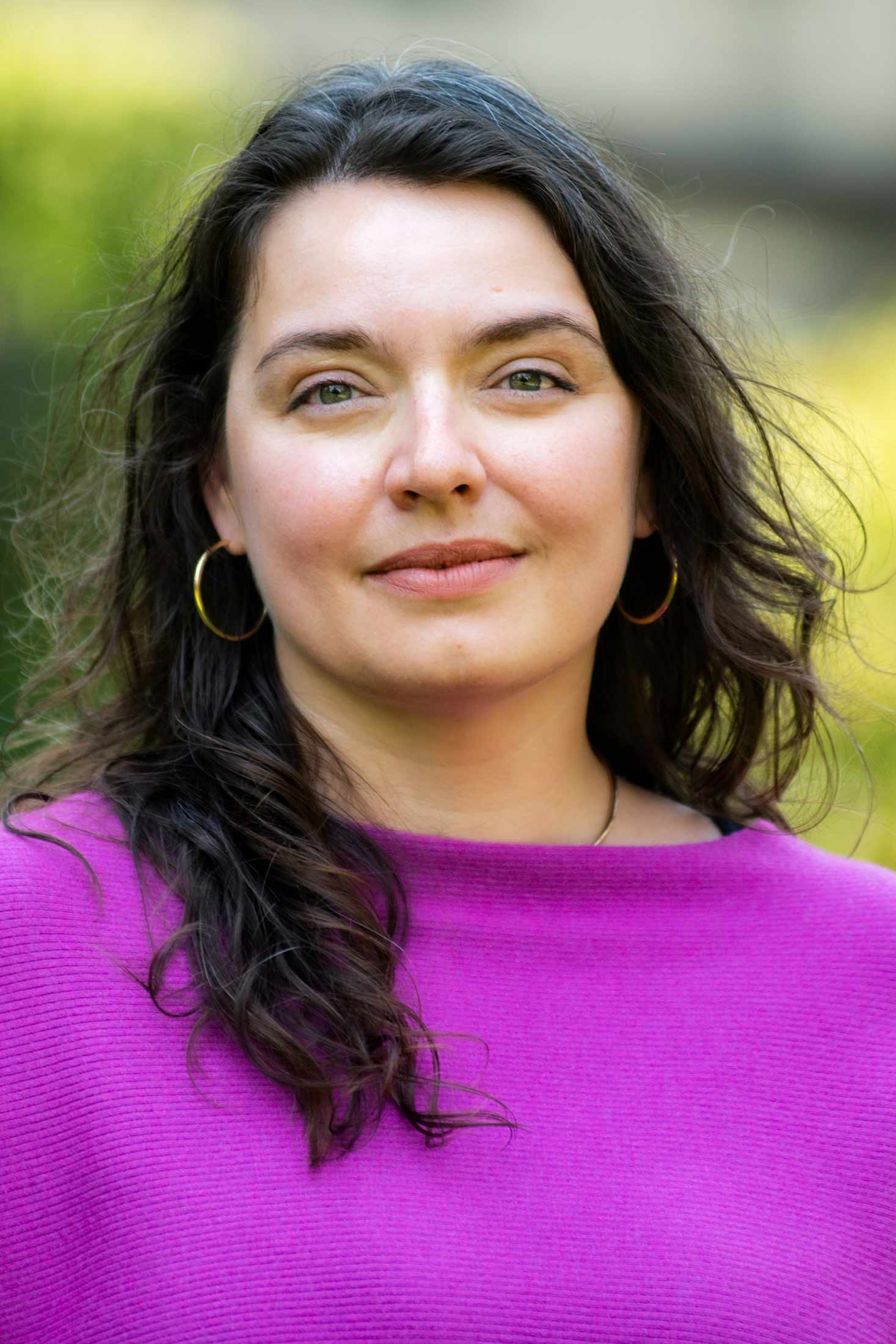
Associate Professor Wesselhoeft earned her BA degree at Willamette University and her masters and PhD from Harvard University. She is a scholar of modern and contemporary Islam in contexts shaped by colonialism and liberal secularism, with particular interests in ethics, migration, and gender. Her first book, Fraternal Critique: The Politics of Muslim Community in France, is forthcoming with the University of Chicago Press in 2025.
From 2022–2024, she was the Faculty Director and Principal Investigator of the Consortium on Forced Migration, Displacement, and Education, a five-college grant from the Mellon Foundation that addressed the global challenge of forced migration through the unique capacities of liberal arts institutions.
“I came to Vassar seeking a workplace that valued wide-ranging curiosity, rigorous inquiry, and ambitious social impact,” Wesselhoeft said. “I always knew that I would do my best work on a campus that saw the undergraduate classroom as a space of intellectual transformation, and valued the deep creative work of pedagogy alongside scholarly research and writing. My work at Vassar has not only fulfilled these initial expectations, it has also challenged me to develop as an educator and scholar in ways that I could not have foreseen when I arrived. The Hudson Valley has been a beautiful and vibrant place to put down roots and build community both within and beyond the College.”